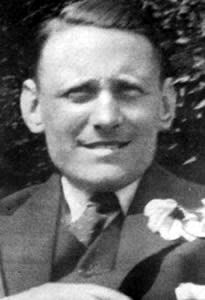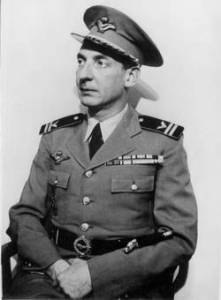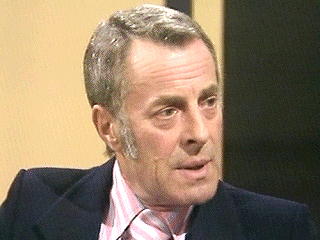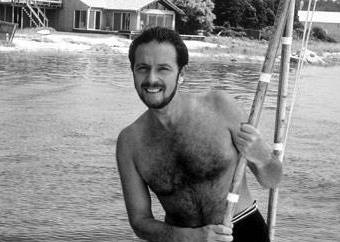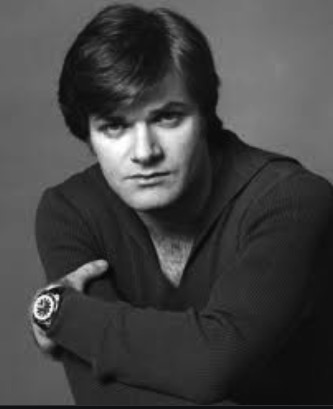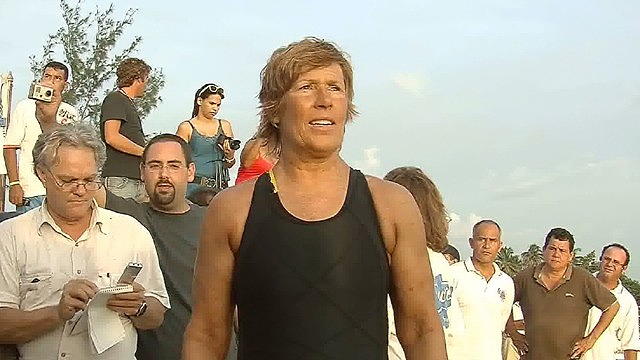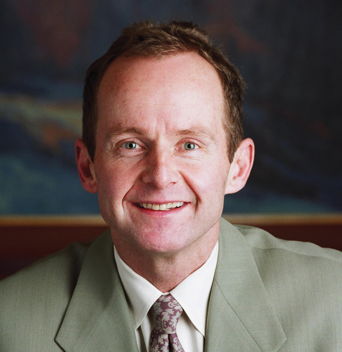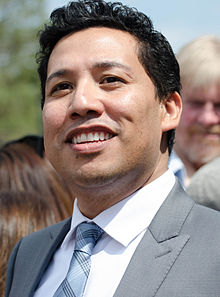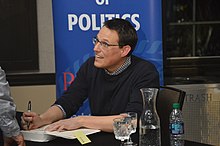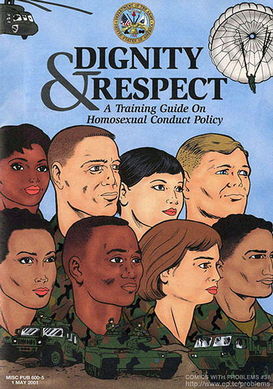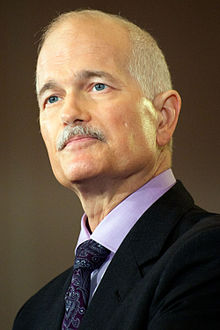|
presents THIS DAY IN GAY HISTORY based on: The White Crane Institute's 'Gay Wisdom', Gay Birthdays, Gay For Today, Famous GLBT, glbt-Gay Encylopedia, Today in Gay History, Wikipedia, and more …
Collected by Ted August 22 [{(o)}]|[{(o)}]|[{(o)}]|[{(o)}]| [{(o)}]|[{(o)}]
1662 – On this date a leader of the Mexican Inquisition sent a letter to his supervisors in Spain complaining that the severe punishments given to sodomites had been ineffective. He noted that over 100 had been indicted, that a large number of the offenders were clergy, and that torture had been used to extract confessions. (One man was tortured to the point of confessing to sex with forty men, several mules, and some chickens.)
1894 – Willem Arondeus (d.1943) was a homosexual Dutch artist and author, who joined the anti-Nazi resistance movement during World War II. Willem Arondeus was born in Naarden. One of six children, Willem grew up in Amsterdam where his parents were theater costume designers. When Willem was 17, he fought with his parents about his homosexuality. He left home and severed contact with his family. He began writing and painting, and in the 1920s was commissioned to do a mural for the Rotterdam town hall. When he was 38, Willem met Jan Tijssen, the son of a greengrocer, and they lived together for the next seven years. Although he was a struggling painter, Willem refused to go on welfare. About 1935, he gave up visual arts and became an author. The poems and stories he had written in the 1920s went unpublished, but in the year 1938 he published two novels, Het Uilenhuis ('The Owls House') and In de bloeiende Ramenas ('In the Blossoming Winter Radish'), both illustrated with designs by Arondeus himself. 1939 saw the publication of his best work, Matthijs Maris: de tragiek van den droom ('The Tragedy of the Dream'), a biography of the painter Matthijs Maris. Soon after, the war began, Holland was occupied, and Arondeus became involved with the Dutch resistance movement. His unit's main task was to falsify identity papers for Dutch Jews. In the spring of 1941, he started an underground periodical in which he tried to incite his fellow artists to resist the Nazi occupation of the Netherlands. Earlier than others, Arondeus realized that the demand by the Nazi occupiers that all Jews register with the local authorities was not, as the Nazis claimed, for their own safety, but rather so they could be deported to the Westerbork concentration camp and from there to the death camps in occupied Poland. A concerted operation was underway to hide Jews among the local population, with various underground organizations preparing forged documents for Jews. Arondeus was a member of one such group, Raad van Verzet (Resistance Council). Within a short while, the Nazis began to uncover the false documents by comparing the names with those in the local population registry. To hinder the Nazis, on March 27, 1943, Arondeus led a group in bombing the population registry in Amsterdam. Thousands of files were destroyed, and the attempt to compare forge documents with the registry were hindered. Within a week, Arondeus and the other members of the group were arrested. They were executed that July. In his last message before his execution, Arondeus, who had lived openly as a gay man before the war, asked, "Let it be known that homosexuals are not cowards." In 1945, after the liberation of the Netherlands, Arondeus was awarded a posthumous medal by the Dutch government.
Almásy was born in Borostyánk in the Austrian-Hungarian monarchy into a non-titled Hun noble family. He was educated by a private tutor in Eastbourne from 1911 to 1914. During World War I, he served with the Austro-Hungarian Imperial and Royal Aviation Troops. After the war, Almásy continued to support King Karl of Austria, and, on two occasions, drove him to Budapest when he tried to get his throne back. It may be that Karl bestowed him unofficially with the title of count that Almásy only used outside of Hungary. After 1921, Almásy worked as a representative of an Austrian car firm and won many car races in their colours. He also organised hunting trips in Egypt for visiting Europeans. He developed an interest in the area and later returned there to drive and hunt. In 1932, he left to find the legendary Zerzura, the Oasis of the Birds, with three Britons, Sir Robert Clayton, Commander Penderel and Patrick Clayton, who were sponsored by Prince Kemal el Din. They discovered prehistoric rock art sites in Uweinat and Gilf Kebir, and Almasy claimed that in 1933 he found the third valley of Zerzura in Wadi Talh. He also discovered the magyarab tribe in Nubia, who speak Arabic but believe that they are the descendants of Hungarian soldiers who served in the army of Turkey in the 16th century. In 1932 his former sponsor Clayton died — not from a crash-landing as described in The English Patient — but of an infection from a desert fly contracted in the Gilf Kebir region. Almásy recorded some of his adventures in the book Az ismeretlen Szahara (The Unknown Sahara). It contains accounts of his most sensational discoveries like the one of the Jebel Uweinat (the highest mountain of the Eastern Sahara desert), of the rock paintings in the Gilf Kebir and of the lost oasis of Zerzura. In the following years, Almásy led archaeological and ethnographical expeditions with the German ethnographer Leo Frobenius. He also worked in Egypt at Al Maza airfield as a flying instructor. After the outbreak of World War II in 1939, he had to return to Hungary. The British suspected that he was a spy for the Italians - and vice versa. In fact he was a Hungarian who worked for which ever colonial power offered him the best surveying contract. Hungary formally joined the Axis powers by signing the Tripartite Pact in November of 1940. The Abwehr (German military intelligence service) recruited him in Budapest. As a Hungarian reserve officer, he was assigned to the Luftwaffe as a Hauptmann (captain) and assigned to the Afrika Korps. In 1941-1942, he worked with the German troops of Erwin Rommel using his desert experience and led military missions, including Operation Salaam, to infiltrate two German spies through enemy lines in a manner similar to the allied Long Range Desert Group. This was not a covert operation: Almásy and his team wore German uniforms, although they used American vehicles with German crosses surreptitiously incorporated as part of the vehicles camoflage pattern. Almásy delivered the German (Abwehr) agents Hans Eppler and Peter Stanstede to Cairo in the same way. Rommel subsequently promoted Almásy to major. The details of Almásy's role in World War II are likely to remain unclear. For delivering spies, he received the Iron Cross (Eisernes Kreuz) from Rommel. He was, however, never a spy nor a Nazi. The real Almásy was a far cry from the character portrayed by Ralph Fiennes in the film based on Michael Ondaatje's novel, a dashing explorer who falls in love with another man's wife while working with the Royal Geographical Society in North Africa, and who helps the Nazis only as a way to be united with his love. In real life he was an intrepid explorer, but letters discovered in 2010 in Germany written by Almásy prove he, unlike the fictionalized character of the film The English Patient, was in fact a homosexual, who wrote passionate letters to a young German officer he tried to help avoid going to the Russian front. His lover, a young soldier named Hans Entholt, was an officer in the Wehrmacht and was killed after stepping on a landmine. A staff member of the Heinrich Barth Institute for African Studies, where the letters are located, also confirmed that "Egyptian princes were among Almásy's lovers." After the end of the desert war, Almásy relocated to Turkey where he became involved in a plan to cause an Egyptian revolt which never materialised. He then returned to Budapest where with his contacts from the Roman Catholic Church he helped save the lives of several Jewish families at a time when Jews were being sent to concentration camps. After the war he was arrested in Hungary and ended up in a Soviet prison. After Communists took over in Hungary, Almásy was tried for treason in the Communist People's Court but was eventually acquitted. He escaped the country reputedly with the aid of British intelligence and they spirited him into British occupied Austria and were chased by a KGB 'hit squad' until they got him on a aeroplane to Cairo. They bribed Hungarian Communist officials to enable his release. He returned to Egypt at the invitation of King Faruk and became the technical director of the newly founded Desert Institute. He could not continue directing expeditions into the desert to search for King Cambyses' 'Lost Army' of history, the legendary Persian King whose army of 10,000 men had apparently vanished in the 'Sand Sea' that Almásy so loved. Almásy became ill in 1951 during his visit in Austria. He died of dysentery in a hospital in Salzburg, where he was then buried. The epitaph on his grave, erected by Hungarian patriots in 1995, honours him as a "Pilot, Sahara Explorer, and Discoverer of the Zerzura Oasis".
1915 – Hertfordshire-born Hugh Paddick (d.2000) was a comedy actor with a successful career on radio, television, stage and in films - mostly from the late-1950s to the early-70s. He holds a special place in gay culture because as a cast member of the hugely popular BBC radio show Round the Horne (1965-8). He was Julian to Kenneth Williams' Sandy. Togther, they were mainly responsible for bringing the secret gay language polari (see below) to a wider audience. Hugh Paddick lived for over fifty years with his partner, Francis, who he met at a party in London. He was also apparently distantly related to gay former-police commander and London mayoral candidate Brian Paddick.
1924 – Writer James Kirkwood (d.1989) was well known in the world of theater through his work as an actor, playwright, and comedian. He reached the peak of his fame when A Chorus Line, the celebrated musical, opened at the Public Theater in 1975. Executing a concept by choreographer Michael Bennett, with music by Marvin Hamlisch and lyrics by Edward Kleban, Kirkwood joined with co-writer Nicholas Dante to develop a script based on the tape-recorded reminiscences of Broadway "gypsies," the young men and women who sing and dance in the chorus lines of musicals. In 1976, his contributions to the show brought Kirkwood a Tony Award and a Pulitzer Prize.  As theater critic Frank Rich noted, " 'A Chorus Line' was also the first Broadway musical to deal matter-of-factly with homosexuality, and from an inside point-of-view that makes its gay men seem far more accessible than the martyrs and oddballs that typified stage homosexuals in mainstream American drama of the post-Boys in the Band, pre-AIDS era." Kirkwood was born on August 22, 1924, in Hollywood; his parents were the silent film stars Lila Lee and James Kirkwood. After their divorce, Kirkwood was shunted between the two of them, making holiday times especially awkward and painful. He spent much of his time with his mother's family in Elyria, Ohio, a small town where he graduated from high school. In its matter-of-fact treatment of homosexuality, A Chorus Line somewhat resembles Kirkwood's five novels. His first book, There Must Be a Pony!, was published in 1960, and later adapted for the stage and for television. Its hero is young Josh, who struggles for balance when his alcoholic mother accuses him of being her rival for the affections of her dead boyfriend. Josh is not clearly seen as gay, but his mother's accusation would have been familiar to at least a few readers. Kirkwood's next novel, Good Times / Bad Times, published in 1968, presents two young men at a New England prep school who are threatened when the disturbed headmaster develops a homoerotic fixation on the narrator, Peter. What makes the headmaster's attraction so dangerous is the fact that he cannot acknowledge it. "Guys who don't have a problem, if they come into contact with anything homosexual, they can just shrug it off," Peter's best explains. He also tells Peter, "Any man who says he wouldn't whack off with Cary Grant is either a liar or can't get it up." The novel is suffused with homoeroticism, but homosexuality is nervously disavowed by the narrator, who says at one point, "We threw our arms around one another and we kissed. It was a real kiss, and no matter what anybody might think, a perfectly right and fitting expression of our friendship for that time and place and for us." 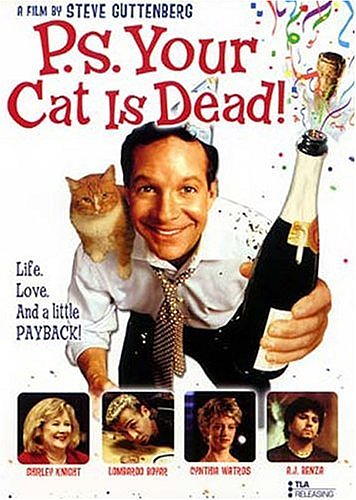 Kirkwood's next novel, P.S. Your Cat Is Dead, published in 1972, is a farce in which a straight man whose girlfriend has just dumped him ties a naked gay burglar to his kitchen table. This was followed by Some Kind of Hero (1975), in which a returned Vietnam veteran and POW, traumatized first by the death of a fellow prisoner (and lover) and then by his wife's abandonment, becomes a robber. This novel was made into a film starring Richard Pryor. P.S. Your Cat Is Dead became both a stage play and film. Kirkwood's last novel, Hit Me With a Rainbow, published in 1980, presents the improbable love affair between a young man and an older movie star. Her entourage includes an openly gay servant. In Diary of a Mad Playwright (1989), Kirkwood recounts the hilarious and harrowing attempt to bring his comic play, Legends, starring Mary Martin and Carol Channing, to Broadway. Here, we may hear his voice at its most natural. Writing about auditioning actors for the part of a male stripper, he wryly observes, "I didn't know whether to laugh, cry, blush, shit, or go blind." Kirkwood's primary residence was in Key West, Florida. A Chorus Line was still running when he died of AIDS-related cancer on April 21, 1989, in his apartment in New York City.
1940 – George Reinholt (d.2013) was an American actor. Reinholt is best known for his soap roles: Steve Frame on Another World from 1968 to 1975, and Tony Harris Lord on One Life to Live from 1975 to 1977. He was fired from Another World in 1975 when head writer Harding Lemay wrote him out of the program. In his memoir, Eight Years in Another World, Lemay had pegged Reinholt's behavior to be not unlike a diva. In a well-publicized move, Reinholt nabbed jobs both for him and his on-screen love interest, Jacqueline Courtney, on rival soap One Life to Live.After he retired from acting, he came out as a homosexual. His disdain for discrimination against gay actors in the genre has alienated him from casting directors, and he has sworn off any comebacks in the medium. His resolve was weakened twice, once when he returned briefly for AW's 25th anniversary show in 1989, and another time when he considered returning in the mid-1990s. However, casting directors were not keen on the idea and he was not hired for any of the jobs he tested for. In 1997 Reinholt placed an ad in a local paper offering his services to take women to parties or other events. Some of the press implied he was selling himself as an escort, in a sexual manner. Reinholt was furious and appeared on the Sally Jesse Raphael talk show to clear up the record. On November 11, 2013 Reinholt died of cancer at his home in Essington, Pennsylvania at the age of 73.
Paul Singer founded the Paul E. Singer Family Foundation, which supports many charitable projects including the Harvard Graduate School of Education Singer Prize for Excellence in Secondary Teaching and VH1 Save The Music Foundation, the Food Bank For New York City, National Gay and Lesbian Task Force Action Fund, and the New York City Police Foundation. In addition, Singer, whose gay son married his partner in Massachusetts, where gay marriage is legal, has donated $425,000 of his own money and raised another $500,000 to support the drive for legalization of gay marriage in New York, and in October 2012, Singer donated $250,000 to the Maryland Marriage Campaign. Singer sponsors the University of Rochester Singer Prize for Excellence in Secondary Teaching, the Harlem Children's Zone, and the Success Charter Network. He also supports the Police Athletic League NYC and the NYC Police Foundation. Singer has given over $14 million to a variety of military causes, including the Bob Woodruff Foundation, the Semper Fi Fund, the Special Operations Warrior Foundation, Spirit of America, the Navy Seal Foundation, The Mission Continues, and the Children of Fallen Patriots Foundation. Singer, who has a gay son in Massachusetts, has contributed to gay-rights causes and same-sex marriage campaigns, and has also actively sought to persuade other conservatives to support gay marriage. He has joined other Wall Street executives in support of LGBT equality in the workplace as a means of retaining employees and improving overall business outcomes. He has said that same-sex marriage promotes "family stability" and said that in a time when "the institution of marriage in America has utterly collapsed," the fact that gay couples want to marry "is kind of a lovely thing and a cool thing and a wonderful thing." In 2012, Singer provided $1 million to start a super PAC named American Unity PAC. According to the New York Times, the PAC's "sole mission will be to encourage Republican candidates to support same-sex marriage, in part by helping them to feel financially shielded from any blowback from well-funded groups that oppose it."
1949 – Diana Nyad, born in New York City, New York, is an American author, journalist, and long-distance swimmer noted for her world-record endurance championships. She was also once ranked 30th amongst U.S. women squash players. Over two days in 1979, Nyad swam from Bimini to Florida, setting a distance record for non-stop swimming without a wetsuit that still stands today. She broke numerous world records, including the 45-year-old mark for circling Manhattan Island (7 hrs, 57 min) in 1975. She was inducted into the National Women's Hall of Fame in 1986. Nyad was honored with her induction in the International Swimming Hall of Fame in 2003. She provides a weekly five-minute radio piece on sports for KCRW called The Score (heard during KCRW's broadcast of NPR's "All Things Considered"), as well as for the Marketplace radio program. She formerly hosted the public radio program "The Savvy Traveler." On July 8, 2011, the U.S. gay sports website CompeteNetwork reported on her plans for the 2011 Cuba-to-Florida swim, writing that "(the) amazing Diana Nyad is a living legend in the swim world, and a role model for the GLBT community..." Nyad is openly lesbian.In September 2011, Nyad announced that she would attempt the Cuba-to-Florida swim once again in 2012. She told a reporter that, in contrast to her youth, her drive as a swimmer is no longer propelled by attempts to work through the anger manifest from sexual abuse she suffered as a teenager. The 62 year-old Nyad undertook the proposed swim in August of 2012. She set out without a cage, and at times was followed by sharks, but they did not stop her in her attempt. Nor did hypothermia. After 41 hours she was driven from the water by jelly-fish, many of which have nerve toxins in their stings. She did not accomplish her goal. She had said this would be her last attempt. On September 2, 2013, after 53 hours in the water, she finally achieved the feat of swimming from Cuba to Florida without a cage. Nyad has said a factor in her determination while swimming was her anger about, and her desire to overcome, sexual abuse she said she experienced as a child. Nyad has spoken publicly about this issue.Nyad is openly lesbian and is an atheist.
1955 – Tom Tunney is an American entrepreneur and politician from Chicago, Illinois. Since 2003, he has served as an alderman on the Chicago City Council. He represents the prominent 44th Ward of the city, which includes major tourist destinations, Boystown and Wrigleyville neighborhoods. Tunney was born and raised in the southwest side of Chicago. After graduating from Brother Rice, a local Catholic high school, he attended the University of Illinois where he obtained his bachelor's degree in restaurant management. Returning from college, Tunney settled into the Lakeview neighborhood. Hearing that Ann Sather was retiring and closing her restaurant in Lakeview in 1981, Tunney met with Sather, offering a proposal to purchase her business. Tunney gained full ownership of the Ann Sather Restaurant and expanded it into a successful local chain. Tunney joined several prestigious entrepreneurial circles and became chairman of the Illinois Restaurant Association. He founded and led the Lakeview Center Business Association and White Crane Wellness Center. As a result of his success, Tunney was inducted into the Chicago Gay and Lesbian Hall of Fame in 1995. Tunney opened his restaurants to grassroots and nonprofit organizations as town halls, serving as free meeting places. He committed himself to helping people with HIV and AIDS through programs he created, adopted by the Illinois Masonic Hospital. With a growing business network, Tunney became a fundraiser for local gay and lesbian political advocacy groups. Tunney was elected to a four-year term as Chicago alderman on February 25, 2003. He has been re-elected twice, in 2007 and 2011. Tunney is one of two openly gay members of the Chicago City Council, alongside James Cappleman of the 46th Ward.
1966 – The National Planning Conference of Homophile Organizations met in San Francisco. It was the first national convention of gay and lesbian organizations, and its name would later be changed to the North American Conference of Homophile Organizations. (NACHO)
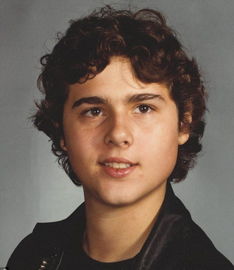
In 1955, Money (1921-2006), a sexologist and psychologist, introduced the concept of ‘gender role’ into the transsexual debate. Money later was heavily criticized over Reimer’s suicide. David Reimer, an identical twin, was mutilated at 8-months old in a botched circumcision and then surgically reassigned by Money and raised as a girl. But he never felt female on the inside (even though his parents followed Money’s advice and hid the fact of his birth sex from him), despite Money’s claims to the contrary. His life, especially at school, was sheer hell because others never really perceived him to be a girl either, despite his girl drag. By age 16, Reimer underwent a second reassignment at his own insistence so that he could live as the boy he knew himself to be. In the meantime, however, Money had convinced the medical establishment and the lay public, despite growing evidence to the contrary in his “girl” twin, that babies could be arbitrarily assigned a gender with no psychological consequences. Today, still, five children a day are surgically “corrected” at birth because of this one “case study” and Money’s defense of his handling of David’s life. With the help of Drs. Milton Diamond and H.K. Sigmundson, Reimer would finally tell the medical establishment the truth about his life in 1997 in the Archives of Adolescent and Pediatric Medicine, challenging the firmly established medical and popular myth that gender was mostly a function of nurture rather than nature. Later that year, Reimer would work with author John Colapinto to tell his story to the lay public, first under a pseudonym, in Rolling Stone.
1972 – On this date John Wojtowicz and Sal Naturale attempted to rob the Chase Manhattan Bank in Brooklyn to get money for Wojtowicz's lover's sex change operation. Naturale was shot to death, and the incident became the subject of the movie "Dog Day Afternoon." Wojtowicz was sentenced to 20 years.
On February 2, 2016, Miranda was appointed the Minister of Culture and Tourism. Previously he had served as a member of various committees, including the Standing Committee on the Alberta Heritage Savings Trust Fund and the Select Special Ethics and Accountability Committee. He also served as chair of the Standing Committee on Alberta’s Economic Future. He was one of the first three openly LGBT politicians elected to the provincial legislature, alongside caucus colleagues Michael Connolly and Estefania Cortes-Vargas. Miranda graduated from Father Lacombe High School in Calgary, and went on to complete a Bachelor of Arts degree from the University of Calgary. Miranda previously sat as a board member of the Parkland Institute, an Edmonton-based public policy think tank.
1979 – Steve Kornacki is an American political journalist, writer, and television host. Kornacki is a national political correspondent for NBC News. He has written articles for Salon, The New York Observer, The Wall Street Journal, The New York Times, the New York Daily News, the New York Post, The Boston Globe, and The Daily Beast. Kornacki was the multimedia anchor and data analyst for much of MSNBC's The Place for Politics campaign coverage, airing throughout 2016. Kornacki attended Boston University. He started his journalism career as a reporter for PoliticsNJ.com, a New Jersey political news site owned by David Wildstein, where he worked from 2002 to 2006. He formerly co-hosted a political news series at News 12 New Jersey and reported on the U.S. Congress for the newspaper Roll Call. He joined the writing staff of Salon.com in 2010. He co-hosted The Cycle on MSNBC with political strategist Krystal Ball, pop-culture commentator Touré Neblett, and conservative columnist S.E. Cupp from the program's inception through March 20, 2013. On March 19, 2013, it was announced that Kornacki would take over another MSNBC program, Up, airing Saturdays and Sundays from 8 to 10 a.m., starting in April. Beginning in 2016, Kornacki hosted a daily program from 4 p.m. to 5 p.m., and frequently guest hosts on Hardball with Chris Matthews, All In with Chris Hayes and The Rachel Maddow Show. In May 2017, Kornacki transitioned away from anchor duties at MSNBC and toward more franchise reporting for NBC News. On May 8, 2017, Kornacki was named National Political Correspondent for NBC News Group, with plans to continue co-hosting the 4 p.m. edition of MSNBC Live with Nicolle Wallace. Kornacki is openly gay, and publicly came out in 2011 through a column in Salon.
1983 – On this date the organizers of a Washington march marking the 20th anniversary of the iconic March on Washington, announced that no representatives from Gay or Lesbian rights groups would be allowed to speak, thereby desecrating the memory of Bayard Rustin, the organizer of the original March On Washington who was Gay and hounded by the same kind of bigots during his lifetime (chiefly New York's Congressman Adam Clayton Powell).
1996 – on this date Gov. Kirk Fordice of Mississippi signed an executive order banning same-sex marriage.
1996 – On this date the North Charleston, South Carolina City Council revoked the license of a health club for gay and bisexual men on the grounds that it was a sexually oriented business.
1998 – Hundreds picketed at the Coral Ridge Presbyterian Church to protest the Truth In Love newspaper ad campaign, which claimed gays and lesbians can be "cured" by becoming Christians. The church in Fort Lauderdale, Florida, is a major player in spreading hatred of the gay community.
1998 – Gays and Lesbians in Russia waved a rainbow flag at the Kremlin in honor of National Flag Day.
2001 – U.S. Census figures showed that same-sex couples head nearly 600,000 homes in US, with gay or lesbian couples in nearly every county.
2001 – The San Francisco Weekly reported that
"just seven months into his presidency, Bush has accomplished something Clinton was unable to pull off in eight years: the first-ever U.S. Army training guide on homosexual conduct policy. Now, whenever a soldier has a question about the complex regulations on what exactly it means to be gay in the military, all he has to do is turn to his official Army ... comic book. That's right, comic book. The full-color, 30-page booklet — titled 'Dignity & Respect' — was printed by the Army this summer for distribution among its ranks."
One CanadianGay member wrote of his passing:
Another wrote:
TODAY"S GAY WISDOM: Polari (or alternatively Parlare, Parlary, Palare, Palarie, Palari; from Italian parlare, "to talk") is a form of cant slang used in Britain by actors, circus and fairground showmen, criminals, prostitutes, and by the gay subculture. It was popularised in the 1960s by camp characters Julian and Sandy in the popular BBC radio show Round the Horne. There is some debate about its origins, but it can be traced back to at least the 19th century, and possibly the 16th century. There is a longstanding connection with Punch and Judy street puppet performers who traditionally used Polari to converse.  Polari was used in London fishmarkets, the theatre, and fairgrounds and circuses, hence the many borrowings from Romany. As many gay men worked in theatrical entertainment it was also used amongst the gay subculture, at a time when homosexual acts were illegal, to disguise homosexual activity from hostile outsiders and undercover policemen. It was also used extensively in the Merchant Navy, where many gay men joined cruise ships as waiters, stewards and entertainers. On one hand, it would be used as a means of cover, to allow gay subjects to be discussed aloud without being understood; on the other hand, it was also used by some, particularly the most visibly camp and effeminate, as a further way of asserting their identity. Polari had begun to fall into disuse amongst the gay subculture by the late 1960s. The popularity of the Julian and Sandy characters ensured that this secret language became public property, and the gay liberationists of the 1970s viewed it as rather degrading, divisive and politically incorrect as it was often used to gossip about, or criticise, others, as well as to discuss sexual exploits. In addition, the need for a secret subculture code declined with the legalisation of adult homosexual acts in England and Wales in 1967. Since the mid-1990s, with the redistribution of tapes and CDs of Round The Horne and increasing academic interest, Polari has undergone something of a revival. New words are being invented and updated to refer to more recent cultural concepts. A few words which have descended to us from the polari patois: barney: a fight basket: the bulge of male genitals through the clothes bitch: effeminate or passive gay man butch: masculine; masculine lesbian chicken: young man camp: exaggerated effeminacy cottaging: engaging in sex acts in public toilets drag: women's clothes fruit: queen rough trade: tough, thuggish, potentially dangerous sex partner scarper: flee, run off
|
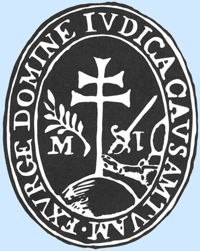 The Seal of the Inquisition
The Seal of the Inquisition